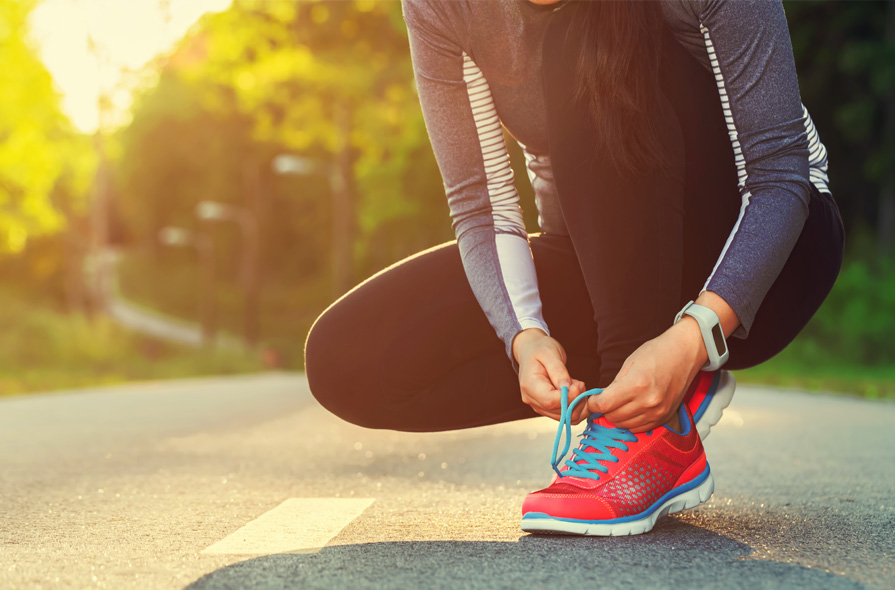Sleep And Exercise Facts: Can Exercise Help You Sleep Better?

If you’ve ever struggled with falling asleep, you’ll notice how quickly your thoughts start to consist only of your sleep issues. The longer to try to fall asleep, the more you ask yourself why you’re not passed out yet, keeping you awake longer and longer. There may be something missing from your daily routine that will help you fall asleep faster and stay asleep longer- exercise! Regular, moderate exercise has proven to be highly effective not only in helping people lead a healthier lifestyle but also in helping them get a better night’s sleep. Read on to learn about the benefits of regular physical activity for your sleep health and a few tips to get more active today!
Why is Exercise Good for your sleep?
Exercise is one of the most effective ways to improve sleep and sleep experts regard it as a critical component of long-term sleep health. If you have trouble sleeping and exercise isn’t part of your daily routine, it may be time to get moving. Studies have shown that regular, moderate aerobic exercise can decrease the time it takes to fall asleep. Working out has also been shown to boost your time in deep, or slow-wave, sleep. Increasingly, exercise is understood as a potentially effective treatment for sleep disorders including insomnia. Exercise, especially the kind that leads to weight loss, can also contribute to improvements with sleep apnea.
Body Temperature and Exercise
Body temperature and the brain’s sleep-wake cycle appear to be closely linked, so understanding your body’s temperature changes can help you figure out how to get more rem sleep.
The increase in body temperature during late-afternoon exercise, followed by the drop in body temperature that accompanies sleep onset, may be one reason why sleep occurs more easily alongside regular physical activity. Exercise also eases muscular tension, reduces stress, and increases the body’s production of endorphins, which in turn creates a sense of well-being. This overall sense of ease may help you sleep better.
How to Get Started
You don’t need to jump into a rigorous exercise regimen right away; you can slowly ramp up your activity to whatever suits you. Moderate exercise typically means at least 20 to 30 minutes of brisk walking, cycling or similar vigorous movement. Fortunately, the body interprets lots of spirited activity as exercise, whether you’re jogging, vacuuming the stairs, raking leaves, or walking your dog. Although vigorous exercise near bedtime may interfere with sleep, light physical activity in the evening can be very helpful in getting the body ready for sleep. In particular, gentle stretching and yoga tend to be relaxing, helping to reduce stress and tension.
If exercise isn’t a part of your regular routine, or if you want to make sure that you’re doing the right moves at the right time, there are four essential tips that help you exercise your way to a better night’s sleep.
Timing matters
Try to finish your moderate workout no later than the early evening hours, to give your muscles and circulatory system time to calm down and prepare for sleep. Late afternoon exercise can be beneficial to sleep, but working out too close to bedtime may disrupt sleep. Try to avoid exercising for at least three hours before bedtime, so your body has enough time to cool off and unwind.
Push Yourself
Moderate aerobic exercise should be done for at least 20 to 30 minutes to reap the biggest sleep benefits. Examples of moderate forms of exercise include jogging, swimming, scrubbing floors, riding a bicycle, jumping rope, washing your car, brisk walking, and using a treadmill or stationary bike.
Go Light at Night
Engaging in mild, non-aerobic activity can help you relax at the end of the day, and tell your body that it’s time to sleep. Examples of mild exercises are yoga, stretching, walking at a relaxed pace, breathing deeply, and relaxation exercises. These light forms of physical activity are ideal for the end of your day and might help you figure out how to lose weight in your sleep.
Keep going!
Getting into the habit of exercise will improve sleep habits over time. Some research suggests that the full sleep-related benefits of exercise accrue gradually. For your health and sleep, find an exercise routine you can live with and stick with it for the long term.
If you’re new to an exercise routine, you can always consult your doctor for advice on the best way to start. If you’re already in the habit of exercising regularly, keep it up! Any exercise is good for your body, mind, health, and sleep. By exercising each day, you’ll be prepping your body for falling asleep early and often.